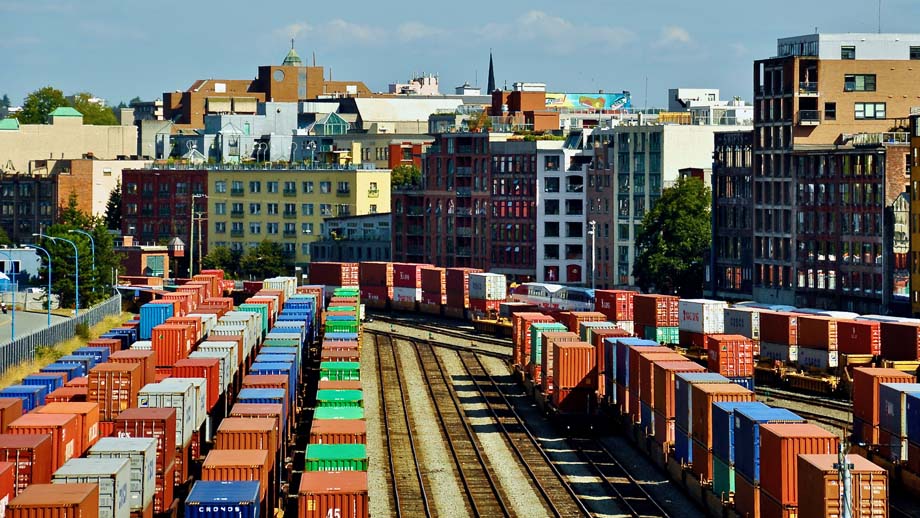

Vancouver British Columbia - Railways suffered a sharp drop-off in container shipments this month
as the strike by B.C. port workers halted more than half of steel-box cargo.
Canadian National Railway Co.'s revenue ton miles, a key industry metric used to gauge income and freight volume, fell
60 percent in the first week of the job action, according to RBC Dominion Securities analyst Walter
Spracklin.
The figure dropped by 45 percent at Canadian Pacific Kansas City Ltd.
The plunge left the number of containers hauled by Canadian railways last week at barely half the level it reached
during the same period in 2022, according to the American Railroad Association.
The corrugated metal boxes, which carry everything from consumer products to auto parts, mark a critical source of cash
for Canada's two main railways, comprising roughly one-quarter of annual revenue.
The International Longshore and Warehouse Union Canada and the BC Maritime Employers Association have until 10:30 PDT
on Thursday to decide if they will accept a federal mediator's recommendations to end the port strike.
Some 7,400 waterfront workers walked off the job on 1 Jul 2023, with wages, automation, and contracting out as the key
sticking points in negotiations.
The job action has halted shipments in and out of about 30 ports in B.C., including the Port of Vancouver, Canada's
largest.
Spracklin said the plummeting container cargo would likely impact railway earnings, as CN has 37 percent of its total
carloads originating in Vancouver and Prince Rupert.
About 20 percent of CP's shipments roll through Vancouver docks.
"That said, we note that in the past, external disruptions including cold weather, blockades, and strikes have not
affected share prices or valuation at the Canadian rails, despite the resulting temporary negative impact on quarterly
results," he said in a note to investors.
The effect of stalled containers rippled beyond the tracks, hitting small business owners particularly
hard.
The Canadian Federation of Independent Business said earlier this week that more than half of businesses it surveyed
will see their operations affected by the strike.
Paul Edgerton, founder of PureLite Glass in Ajax, Ontario, said 60 percent of the materials he uses to make windows for
homes and commercial buildings come from Asia via the West Coast.
"That's already starting to run out. And the recovery period is going to be at least four weeks," he
said.
Of equal concern are the manufacturer's 21 employees.
"How am I going to help them feed their families and pay their bills when I can't make a sale? Because I have no
product to sell."
The materials PureLite uses range from glass to polysulfide and silicone, all of it imported.
"Many of our forwarders, they've taken the vessel name completely off the bill of lading. So we don't even know
what boat it's going to go on, there's no date when it's going to arrive," Edgerton said.
Components from alternate source countries such as the United States are either unavailable or "through the roof
in price. It has a tremendous impact," he said, even if the strike is resolved Thursday.
Christopher Reynolds.
(likely no image with original article)
(usually because it's been seen before)
provisions in Section 29 of the Canadian
Copyright Modernization Act.

